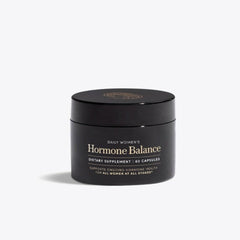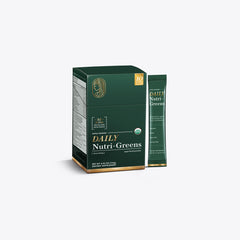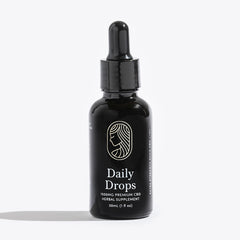 Women have long sought natural solutions to promote overall health and well-being, but our modern knowledge of both health and natural compounds is leading us to better, safer solutions to support many of the common concerns that women have that can be related to hormonal balance. These concerns might be common symptoms related to menstrual cycling, perimenopause or menopause, or even breast health, skin health, and sexual health.
Women have long sought natural solutions to promote overall health and well-being, but our modern knowledge of both health and natural compounds is leading us to better, safer solutions to support many of the common concerns that women have that can be related to hormonal balance. These concerns might be common symptoms related to menstrual cycling, perimenopause or menopause, or even breast health, skin health, and sexual health.
Of particular note, research has shed light on the potential of sulforaphane, a bioactive compound found in cruciferous vegetables like broccoli, Brussels sprouts, and kale, in supporting women’s health. Along with its precursor glucoraphanin, and the enzyme myrosinase, these compounds can work in harmony to benefit xenoestrogen detoxification, cell protection, breast health, and hormonal balance.
The Cruciferous Connection
 Glucoraphanin, the inactive precursor to sulforaphane, lies dormant within cruciferous vegetables. When these vegetables are chopped, chewed, or cooked, the enzyme myrosinase is activated, converting glucoraphanin into the potent sulforaphane. This conversion is crucial for unlocking the health benefits of sulforaphane. <1> Through very careful cultivation, extraction, and purification, these ingredients can also be concentrated into a capsule, so that you can benefit from them even if you aren’t eating them in your diet each day.
Glucoraphanin, the inactive precursor to sulforaphane, lies dormant within cruciferous vegetables. When these vegetables are chopped, chewed, or cooked, the enzyme myrosinase is activated, converting glucoraphanin into the potent sulforaphane. This conversion is crucial for unlocking the health benefits of sulforaphane. <1> Through very careful cultivation, extraction, and purification, these ingredients can also be concentrated into a capsule, so that you can benefit from them even if you aren’t eating them in your diet each day.
Combating Xenoestrogens
Modern life exposes us to numerous xenoestrogens, compounds in the environment and sometimes in foods with hormone-like activity. These substances can disrupt hormonal balance and contribute to various health concerns. Studies suggest that sulforaphane’s ability to induce and enhance the natural processes of detoxification in the body plays a crucial role in neutralizing xenoestrogens and promoting their elimination from the body. Research also supports the role of sulforaphane in naturally enhancing detoxification enzyme activity, thereby improving xenoestrogen clearance. <2>
Guarding Cellular Health
 Oxidative stress and inflammation are normal processes in the body, but when these processes become unbalanced, your health can suffer. Sulforaphane activates Nrf2 (Nuclear Factor-like 2), a complex molecule inside your cells that acts as your built-in defense system against stress and damage from toxins. <3> Studies suggest this cellular protection mechanism is not only important to immediate protection and repair of your cells, but that it may help your cells grow more resistant to future damage.
Oxidative stress and inflammation are normal processes in the body, but when these processes become unbalanced, your health can suffer. Sulforaphane activates Nrf2 (Nuclear Factor-like 2), a complex molecule inside your cells that acts as your built-in defense system against stress and damage from toxins. <3> Studies suggest this cellular protection mechanism is not only important to immediate protection and repair of your cells, but that it may help your cells grow more resistant to future damage.
Breast Health Support
 Beyond its cell-protective and detoxification potential, sulforaphane exhibits promising effects on breast health. Studies suggest it may protect healthy breast cells by promoting apoptosis (programmed cell death) in less healthy cells or those that are old and damaged. <4> However, it’s important to note that these studies were conducted in cell lines and animal models, and further human clinical trials are necessary to confirm this effect in humans.
Beyond its cell-protective and detoxification potential, sulforaphane exhibits promising effects on breast health. Studies suggest it may protect healthy breast cells by promoting apoptosis (programmed cell death) in less healthy cells or those that are old and damaged. <4> However, it’s important to note that these studies were conducted in cell lines and animal models, and further human clinical trials are necessary to confirm this effect in humans.
Hormonal Harmony and More
Women’s health is intricately linked to hormonal balance. Preliminary research suggests that sulforaphane might influence estrogen metabolism, potentially offering benefits for menopausal symptoms and common discomforts related to menstrual cycles. In addition, ongoing research suggests a role for these phytonutrients in heart health, skin health, and balanced weight, which are all important factors in optimizing lifespan.
Optimizing Intake
 While consuming cruciferous vegetables is the natural way to increase sulforaphane, glucoraphanin, and myrosinase intake, factors like cooking methods and individual gut microbiome variations can affect its bioavailability. Studies suggest that consuming broccoli sprouts, rich in both glucoraphanin and active myrosinase, might be a more efficient way to maximize sulforaphane absorption. <5> Additionally, supplements are available such as Daily Women’s Hormone Balance, to help women optimize intake of these powerful nutrients.
While consuming cruciferous vegetables is the natural way to increase sulforaphane, glucoraphanin, and myrosinase intake, factors like cooking methods and individual gut microbiome variations can affect its bioavailability. Studies suggest that consuming broccoli sprouts, rich in both glucoraphanin and active myrosinase, might be a more efficient way to maximize sulforaphane absorption. <5> Additionally, supplements are available such as Daily Women’s Hormone Balance, to help women optimize intake of these powerful nutrients.
The Takeaway…
The research on sulforaphane, glucoraphanin, and myrosinase in the context of women’s health is promising. Their potential to support xenoestrogen detoxification, cell protection, breast health, and hormonal balance shows their unique value to women, and more research is underway and will likely yield additional insights into the optimal utilization of these natural compounds for promoting women’s well-being.
References:
- A Glance at… Broccoli, glucoraphanin, and sulforaphane – ProQuest. Accessed February 6, 2024. https://www.proquest.com/openview/1ed9dcc0f09f4b2e1d0ae6833cdaf6da/1?pq-origsite=gscholar&cbl=105601
- Fahey JW, Talalay P. Antioxidant Functions of Sulforaphane: a Potent Inducer of Phase II Detoxication Enzymes. Food Chem Toxicol. 1999;37(9):973-979. doi:10.1016/S0278-6915(99)00082-4
- Calabrese EJ, Kozumbo WJ. The phytoprotective agent sulforaphane prevents inflammatory degenerative diseases and age-related pathologies via Nrf2-mediated hormesis. Pharmacol Res. 2021;163:105283. doi:10.1016/j.phrs.2020.105283
- Li Y, Zhang T, Korkaya H, et al. Sulforaphane, a Dietary Component of Broccoli/Broccoli Sprouts, Inhibits Breast Cancer Stem Cells. Clin Cancer Res Off J Am Assoc Cancer Res. 2010;16(9):2580-2590. doi:10.1158/1078-0432.CCR-09-2937
- Fahey JW, Zhang Y, Talalay P. Broccoli sprouts: an exceptionally rich source of inducers of enzymes that protect against chemical carcinogens. Proc Natl Acad Sci U S A. 1997;94(19):10367-10372. doi:10.1073/pnas.94.19.10367



